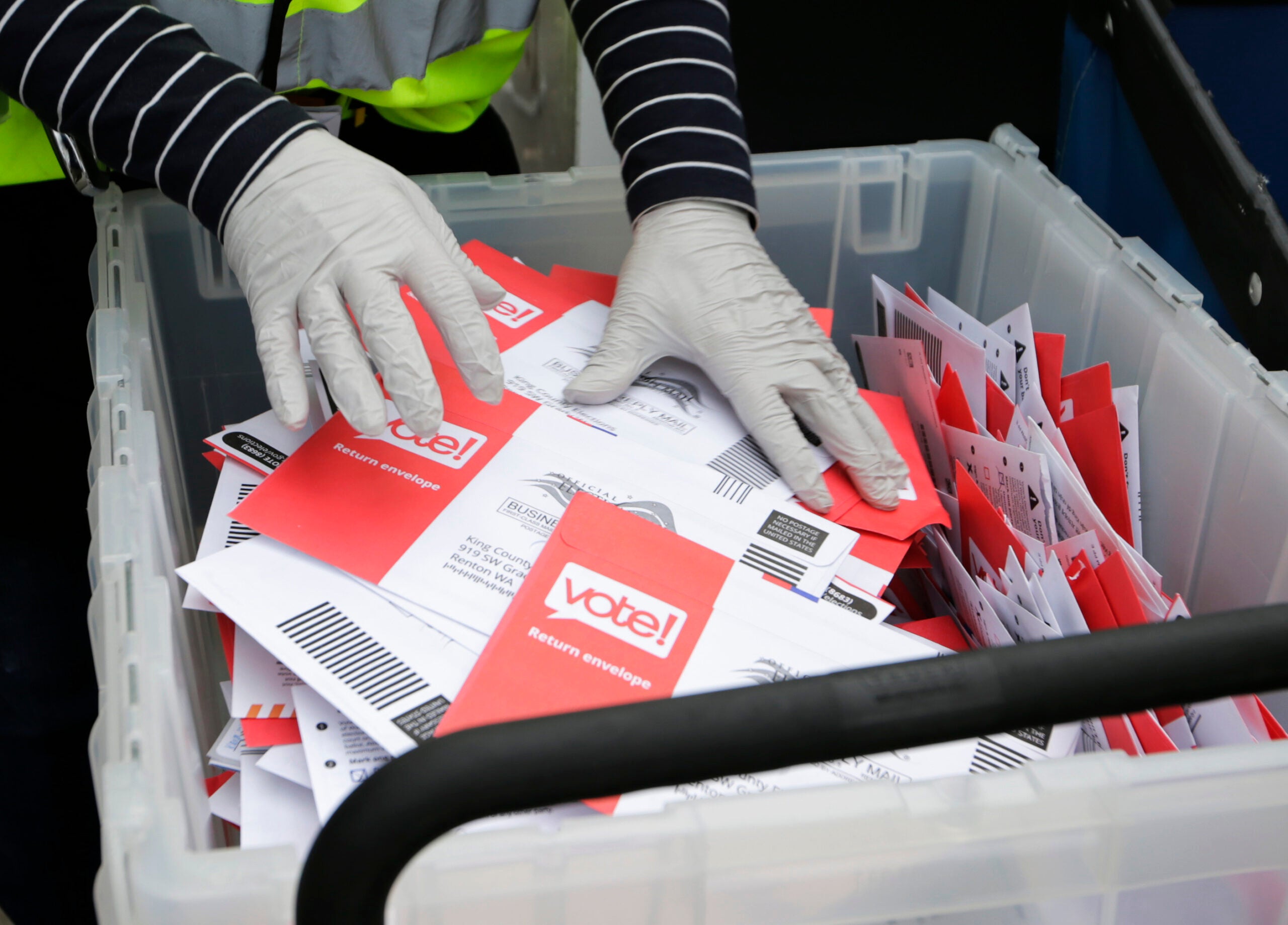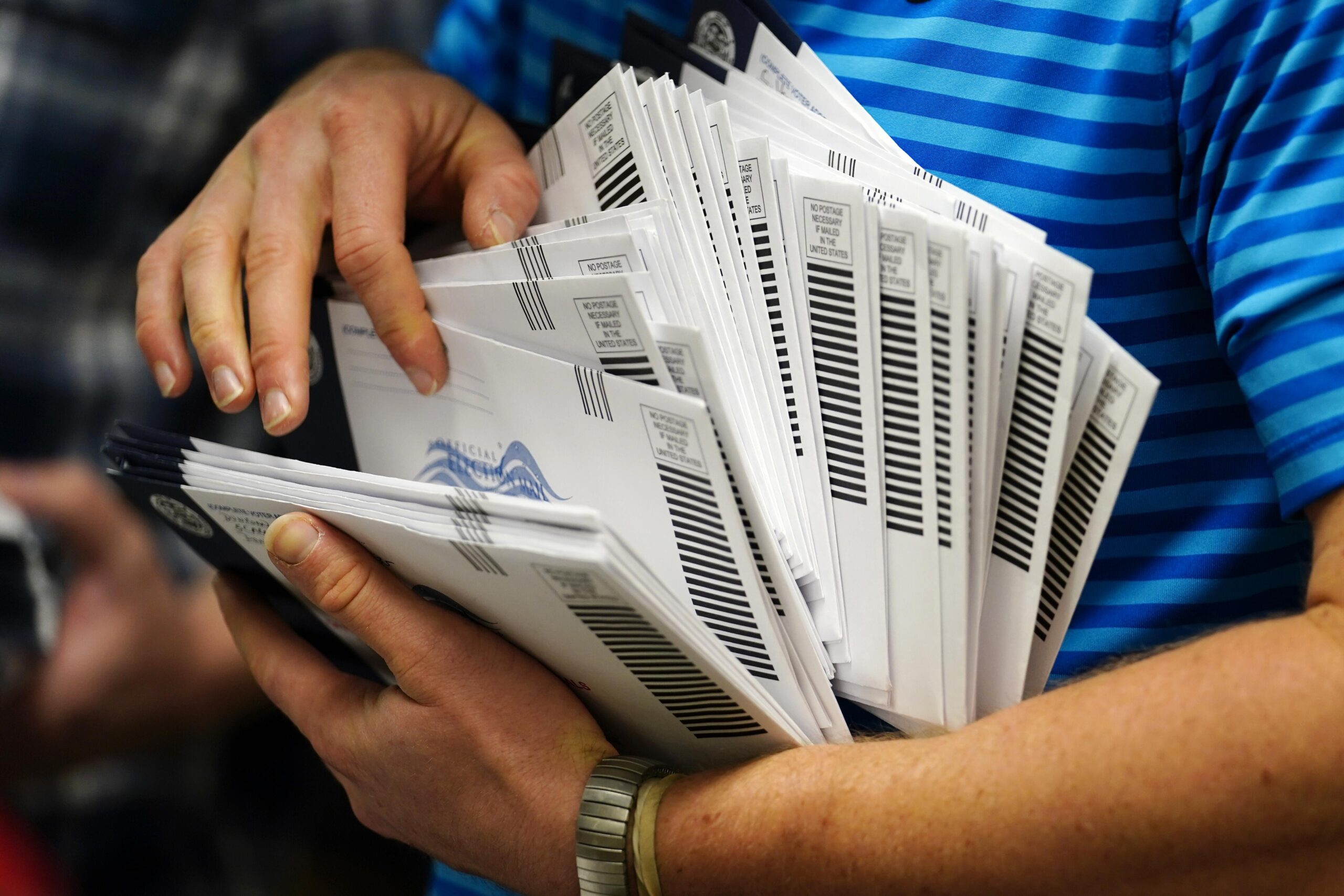The state would send roughly 2.7 million registered voters absentee ballot applications under a motion approved unanimously Wednesday night by the bipartisan Wisconsin Elections Commission.
The move by the commission, which is split evenly between Republicans and Democrats, would be paid for by about $2.3 million in federal funding set aside for elections as part of the coronavirus response bill that passed Congress in late March.
“People like easy ways to do things,” said Democratic Commissioner Mark Thomsen on Wednesday. “And voting without waiting in line has become, in many ways, the norm.”
News with a little more humanity
WPR’s “Wisconsin Today” newsletter keeps you connected to the state you love without feeling overwhelmed. No paywall. No agenda. No corporate filter.
While the Commission voted to send the applications, final wording for the letter that will accompany the forms still needs to be approved by commissioners at their Wednesday, June 10 meeting.
Under the plan approved Wednesday, the state would send absentee ballot applications to nearly all registered voters in an effort to prepare for Wisconsin’s November election.
Roughly 62 percent of all votes in Wisconsin’s April election were cast by mail as voters heeded advice from both the state and federal government to stay home in order to slow the spread of COVID-19. Turnout for the November election is expected to double that of the spring election.
Two groups of voters would be excluded from the plan. The state would not send the applications to people who already have an absentee ballot request on file, a group that numbers about 528,000. In addition, about 158,000 voters who were flagged as having potentially moved would not be sent the mailings.
But nearly everyone else would, including voters who already have photo IDs on file with the state and voters from municipalities such as Milwaukee that are planning to mail out their own absentee ballot applications. When the Elections Commission met last week, Republicans argued sending absentee ballot applications to those voters would be redundant.
Despite the 6-0 final vote, Wednesday’s meeting was far from harmonious.
At issue was the requirement that the Commission give final approval to the wording of the absentee ballot request form. Thomsen and Commissioner Ann Jacobs, another Democrat, argued that requirement could sink the plan.
“We’re going to wind up in a situation where we’re parsing individual words on a letter and 3-3 votes,” Jacobs said. “It does none of us any good.”
Votes that are tied 3-3 have become increasingly common on the Elections Commission with its even partisan split. At least four votes are required to pass anything.
Jacobs wanted to let staff at the Wisconsin Elections Commission choose the wording for the mailing, arguing that requiring commissioners themselves to sign off could lead to a stalemate.
Republicans, like Commissioner Bob Spindell, said they had a duty to approve the letter before it’s sent.
“This is anything but a simple letter,” Spindell said. “It’s our responsibility to follow through on this stuff and make sure that on important issues like this that we’re the ones in command. Not the staff.”
Spindell accused Jacobs and Thomsen of pushing what he called the Democratic agenda of moving to an all-mail election, asserting Republicans were better at voting at the polls on Election Day.
Mail-in voting has been in the spotlight nationally as Wisconsin and the rest of the country brace for the possibility of an election conducted during a pandemic in November.
President Donald Trump has aggressively attacked the state of Michigan for its plan to send absentee ballot applications to all voters, threatening over Twitter to pull federal funding from the state.
Should commissioners give final approval to the application at their next meeting, the state would begin mailing the letters Sept. 1. The deadline for voters to request ballots for the November election is Oct. 29.
Also Wednesday, the commission voted 4-2 for a plan to spend up to $4.1 million in federal funding on grants to local clerks to help offset the cost of a likely surge in absentee voting this fall.
Wisconsin Public Radio, © Copyright 2025, Board of Regents of the University of Wisconsin System and Wisconsin Educational Communications Board.







